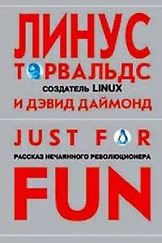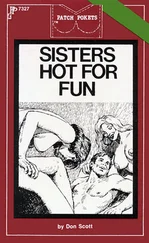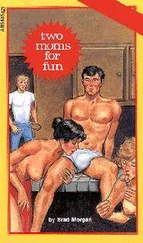My ten-year-old daughter Kaley thinks it's the apex of super-stardom to have someone buy you a penguin. We are sitting around a campfire on a clear Sierra night when Linus explains that a Linux user group in Bristol, England, bought him a penguin. Kaley cannot imagine that he hasn't bothered to visit the creature. Then he elaborates: Actually, they didn't buy him a penguin, but instead sponsored one in his name. And the sponsorship lasts for a year, he thinks.
The Torvalds family is trying to understand the concept behind 'smores. Somebody looks up from his roasted marshmallow and makes the mistake of asking how the penguin came about as the planetary symbol of Linux in the first place.
"The penguin was my idea," says Tove. "Linus was trying to find a symbol for Linux because people were asking, 'Shouldn't there be a symbol?' He was thinking of things he'd seen. The Linux companies had their own symbols. One of the companies had a pink triangle as its symbol. But I knew that was the international symbol for gays, so I told him that had already been taken. He said he would like to have something nice, something sympathetic.
I thought about penguins. Linus had been bitten by a fairy penguin at a zoo in Australia. He likes to pet things. He's always poking at stuff like rattlesnakes. Those penguins at the zoo were about one foot high, and he just reached into the cage to pet one of them. He kind of played with his fingers as if they were fish. The penguin came at him, bit him, noticed he was not a fish. He got bitten by a penguin but he liked it anyway. I got the feeling he was sold on penguins after that. He wanted to see penguins wherever it was possible.
"So when he started looking for a symbol I said, 'Why don't you have a penguin because you fell in love with those penguins?' He said, 'Okay, I'll think about it.' "
Here's where Linus, sitting maybe three bodies away from Tove, shakes his head.
"No, it was not her idea," he says. "She's wrong."
This was a departure. Linus and Tove don't make a habit of disagreeing. Tove is astounding in her ability to deftly handle the responsibilities of the girls and the household -- and a famous husband fending off journalists with her karate skills. Linus seems downright cheerful about chipping in by occasionally folding laundry or doing his morning chore of making the cappuccino. Even during the stress of a ten-hour car trip with the on-again-off-again needs of a pair of young kids, Linus and Tove handle it all smoothly: Think of the marital equivalent of a well-crafted Scandinavian sofa bed.
We found the kink.
The story, according to Linus, is that while Tove may in fact have vaguely mentioned penguins at some early stage, it was in a conversation with two high-ranking Linux types that the icy creatures were first seriously considered as the operating system's official mascot.
Tove has her take on this version. "He thought it wasn't a good idea after all, because it was my idea. He went on thinking about a possible symbol. Then we were in Boston with Maddog and Henry Hall. They started talking about the symbol. I said to them, 'What about a penguin. Do you think it's nice?' They said yes. I think that made Linus think it might be a good idea after all."
"Henry Hall said he knew an artist who could draw it for him, but that never happened. The next thing I knew, Linus had asked on the Internet if there were people who wanted to send in pictures of penguins."
He chose a version by Larry Ewing, a graphic artist who works at the Institute for Scientific Computing at Texas A&M University.
But this wasn't to be just any penguin. Above all, Linus wanted one that looked happy, as if it had just polished off a pitcher of beer and then had the best sex of its life. Even beyond that stipulation, he wanted one that was distinct. Hence, while all other penguins have black beaks and feet, those features are orange on the Linux mascot, making it look almost like a penguin whose father was a duck. As if Daffy Duck got a little kwazy on a cruise to Antarctica and had a wild one-night-stand with some native fowl.
News of my decision to work for Transmeta Corporation was greeted with the same reaction in the Linux community as was the news that Tove and I had figured out how to conceive a child and were expecting one at the end of 1996.
When word leaked out in the spring that Tove was pregnant, the more vocal among Linux user newsgroup participants wanted to know how I planned on balancing the demands of Linux maintenance with those of a family. A few months later, when it became known that I would (finally) be leaving the University of Helsinki to work for the secretive Transmeta in Silicon Valley, the big, worldly debate centered on whether I could possibly keep true to my open source philosophy in a dreaded commercial environment, as opposed to a neutral academic institution. Transmeta was partly funded by Microsoft cofounder Paul Allen, folks declared in protest; some claimed it must be an elaborate scam for taking control of Linux.
I'm not saying those aren't valid concerns for loyal members of the Linux community, but it's just ... gimme a break! The fact is, neither the birth of Patricia in December 1996 (and Daniela sixteen months later and Celeste forty-eight months later) nor my job at Transmeta, which began in February 1997, has caused the downfall of Linux. I felt all along that if anything were to negatively affect my work with Linux, I would have taken the obvious necessary step of turning it all over to somebody I trust.
But I'm getting ahead of myself.
In the spring of 1996, just as the weather was breaking, I finished the last of my required coursework for my master's. It was about this time that I heard from Peter Anvin, the Linux community member who three years earlier had organized the online collection that helped me pay off my first PC. Like everybody else who prowled the Linux newsgroups, he knew I would soon be graduating. He had been working at Transmeta for about a year, and approached his boss to explain that he knew this guy in Finland who might be good for the company. He came to meet with me briefly while he was visiting his mother in Sweden. He talked up Transmeta, which was pretty hard to do since it was in stealth mode and he couldn't tell me much of anything. The rumor among programmers was only that it was involved in developing "programmable chips." At the very least it was great to meet Peter in person.
A week after he returned to California, he sent me an email asking when I could come. This was hugely different from the experience I had had with Intel a year earlier, when an engineer wanted to hire me for an internship but it never happened because of the paperwork issues.
It would be fun just to get a trip to California, I thought.
This was the first job interview of my life. I didn't have a CV. I didn't know what Transmeta was doing; it was in a strange land.
I was more worried about the implications of moving to the United States than about getting the job itself, so I didn't even think of my meetings as being interviews. What mattered more, it seemed, was to learn what these guys were up to. It was a fairly strange interview situation.
After the first day, I went back to my hotel across the street from Transmeta's office-park headquarters. In my jet-lagged state I thought it was all interesting, but I also thought that the folks at Transmeta were crazy. At that point the company didn't have any silicon at all. No hardware. Everything was done with a simulator, and the demonstration of the simulation booting into Windows 3.11 and running solitaire did little to convince me that anything was going to happen. After that first day I wondered if it wasn't all a waste. I distinctly remember thinking: Maybe this isn't going to turn out -- either as a technological innovation for Transmeta or a job for me.
Читать дальше












